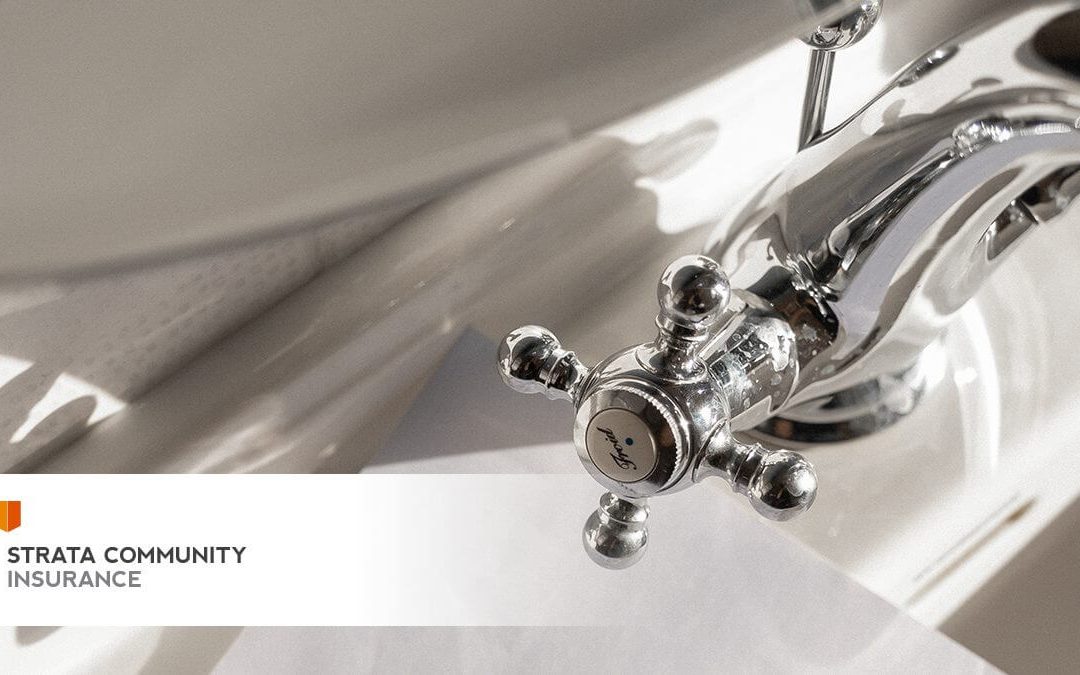Water Damage: The No. 1 cause of strata claims.
At Strata Community Insurance, just under 70% of claims raised relate to water damage. Burst pipe claims are becoming more severe and expensive, often causing damage to furniture, appliances, floors, walls and ceilings.
Added to this is the inconvenience to occupants, who are often required to vacate the premises.
Having strata insurance in place is one key risk mitigation strategy in terms of providing you protection for sudden and accidental water damage. However, it’s important to remember that insurance policies generally do not cover poor maintenance, or situations where a known problem has been allowed to continue over time.
The key is to focus on a good maintenance programme, to help prevent claims from happening in the first place.
Simple steps to avoid water damage from burst pipes:
Prevention is better than a cure.
- Check the condition of flexi hoses – a very common event is the bursting of flexi hoses. A flexi hose is essentially a rubber tube with a steel braid around it. As these hoses are pressurised, a failure of the hose can result in a significant amount of water suddenly entering the unit. These hoses are typically found under sinks, vanities or connected to a toilet. It’s important to regularly check hoses for development of any rust or corrosion and remember that the maximum lifespan of flexi hoses is generally only 10 years or less. 2. Water isolation taps – Be prepared. Know where to turn the water off, both inside your unit and at the main valve, in order to stop the building’s water supply. This goes a long way to minimising damage. 3. Going on a holiday? – While water damage is a year-round threat, we know that when a unit is left unattended the damage can be greater. When you know that you will be away from your unit for some time, it is a good practice to turn off the main water supply to your unit, then turn on a tap and bleed the water from the pipes. Keep in mind that if you live in an older strata block, the building may not have individual isolation valves for each unit. Bodies corporate may consider introduction of individual isolation valves as another key risk mitigation strategy. 4. Inspect your plumbing – water lines and waste lines should be regularly checked for signs of leaks, damage or corrosion.
What to do in The Event of a Burst Pipe?
Step One. Turn off the water supply at both the main valve and in your unit.
Step Two. Call your Strata Manager. Your Strata Manager will be able to put in place a response plan, which will include calling a plumber. A plumber will then attend the premises to attend to make-safe works and assess the cause of the pipe failure.
This information is general in nature only and does not constitute financial product or legal advice. References to insurance coverage and policy terms and conditions are by way of summary only. For full details of any policy’s terms, conditions, benefits and exclusions, please refer to the relevant Product Disclosure Statement.
Contributed by:
Strata Community Service
